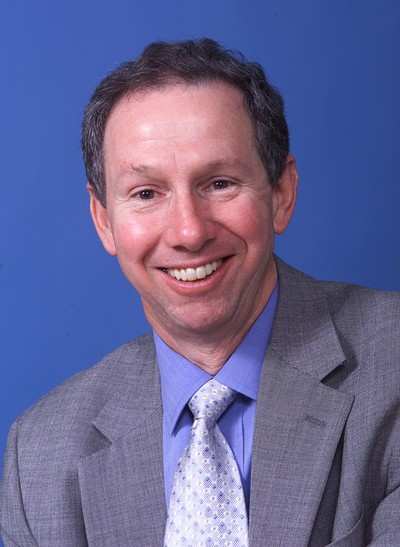Physicist, Aerospace Engineer Congratulated By Key
Lawmakers
 Picked Friday by President Bush to
lead NASA, 55-year old Michael Griffin is as different from his
predecessor as night and day. Whereas Sean O'Keefe came from a
financial and agency management background, Griffin has a
background in academics, with strong science pedigrees in physics
and aerospace engineering.
Picked Friday by President Bush to
lead NASA, 55-year old Michael Griffin is as different from his
predecessor as night and day. Whereas Sean O'Keefe came from a
financial and agency management background, Griffin has a
background in academics, with strong science pedigrees in physics
and aerospace engineering.
But the job Griffin faces is all too familiar to the likes of
O'Keefe: One of his first priorities will be to spar with Congress
on funding issues, oversee the shuttles' return to flight and plan
for America's return to the moon.
Griffin's appointment, subject to Senate approval (no problem
anticipated there) is to be announced in Washington on Monday. One
of the first tasks Dr. Griffin will face upon confirmation is
trying to wrangle from Congress all of the money NASA requested for
2006.
"It is going to be a challenge because we are trying to make
sure we are putting the (NASA) dollars in the places where they can
do the most good," Sen. Kay Bailey Hutchison (R-TX), head of the
Senate's Science, Technology and Space subcommittee, told the
Houston Chronicle. But like other Capitol Hill leaders, she was
enthusiastic in the wording of her congratulations to the Johns
Hopkins University graduate over the weekend. "He is uniquely
qualified" to lead the funding effort, she said.
But while Griffin in particular and NASA in general have the
spoken backing of Congressional leaders, the real question is
whether the president's vision of "Moon, Mars and Beyond" does.
"Congress has never endorsed, in fact, has never discussed the
Vision," House Science Committee Chairman Sherwood Boehlert (R-NY)
told NASA administrators during a budget hearing in February. He
was quoted by the Chronicle. "I don't think NASA should be our top
budget priority either in this committee or the Congress."

Griffin's counter? "A really robust space effort could be had
for a mere 20 cents per day from each person! I spend more than
that on chewing gum. We as a nation quite literally spend more on
pizza than we do on space exploration," he testified before
Congress in October, 2003. "As wealthy as the United States may be,
it is certainly true that we can allocate only a very small
fraction of that wealth to the development of human space flight.
But we must allocate that fraction, and we must spend it wisely. I
don't think we are doing enough of either."
The NSS Chimes In
 These comments came over the weekend
from the National Space Society...
These comments came over the weekend
from the National Space Society...
"Dr. Griffin is a superb choice to lead NASA at this critical
moment. Dr. Griffin's extensive space experience and bold
leadership style will create a powerful driver for implementation
of the vision for space exploration."
"Mike is well known for combining a deep passion for space with
a rigorous commitment to no-nonsense management. That is exactly
what NASA needs now."
"The National Space Society looks forward to supporting Dr.
Griffin as he tackles the challenges of the coming years. NASA has
a wonderful and inspiring mission before it, and Dr. Griffin is the
right captain for this ship."
Griffin's Bio
Griffin has been less than two years on the job at Johns Hopkins
University, where he led the school's Space Department. Here's the
bio posted on the university web site:
Griffin oversees the second-largest department at the
Laboratory, with more than 600 specialists tackling some of NASA's
and the military's toughest space science and engineering
challenges. His tenure begins as the Lab embarks on several
ambitious projects, including a "fire and ice" tandem of robotic
spacecraft to explore Mercury and Pluto – the planets closest
to and farthest from the sun – and unprecedented studies of
solar activity and the sun-Earth relationship.
Griffin succeeded Dr. Stamatios M. (Tom) Krimigis, head of the
Space Department since 1991. His experience includes a previous
stop at APL in the 1980s, when he helped design the successful
Delta 180 series of missile-defense technology satellites for the
Strategic Defense Initiative Organization. After leaving APL in
1986, he served as the Strategic Defense Initiative Organization's
deputy for technology, and as both the chief engineer and associate
administrator for exploration at NASA Headquarters.
Before rejoining APL in April, 2004, Griffin was president and
chief operating officer of In-Q-Tel, a private, non-profit
enterprise funded by the Central Intelligence Agency to identify
and invest in companies developing cutting-edge technologies that
serve national security interests. Griffin's resume also includes
several leadership roles at Orbital Sciences Corporation and key
technical positions at NASA's Jet Propulsion Laboratory and
Computer Sciences Corporation.
 "Mike Griffin is an accomplished
leader, well known and well respected in the aerospace community,"
says APL Director Dr. Richard T. Roca. "He is a dedicated
professional whose enthusiasm for our critical work remained strong
even while he was distinguishing himself as a senior government
executive and a leader in private industry. We are very happy to
have him back to provide leadership for our civilian and military
space initiatives."
"Mike Griffin is an accomplished
leader, well known and well respected in the aerospace community,"
says APL Director Dr. Richard T. Roca. "He is a dedicated
professional whose enthusiasm for our critical work remained strong
even while he was distinguishing himself as a senior government
executive and a leader in private industry. We are very happy to
have him back to provide leadership for our civilian and military
space initiatives."
A resident of Reston, VA, Griffin was named president of the
American Institute of Aeronautics and Astronautics (AIAA) in 2004.
He was also a member of the American Astronautical Society and
International Academy of Astronautics. In addition to a doctorate
in aerospace engineering, he holds master's degrees in aerospace
science, electrical engineering, applied physics, civil engineering
and business administration, and a bachelor's degree in
physics.
 ANN's Daily Aero-Linx (05.06.25)
ANN's Daily Aero-Linx (05.06.25) ANN's Daily Aero-Term (05.06.25): Ultrahigh Frequency (UHF)
ANN's Daily Aero-Term (05.06.25): Ultrahigh Frequency (UHF) ANN FAQ: Q&A 101
ANN FAQ: Q&A 101 Classic Aero-TV: Virtual Reality Painting--PPG Leverages Technology for Training
Classic Aero-TV: Virtual Reality Painting--PPG Leverages Technology for Training Airborne 05.02.25: Joby Crewed Milestone, Diamond Club, Canadian Pilot Insurance
Airborne 05.02.25: Joby Crewed Milestone, Diamond Club, Canadian Pilot Insurance






